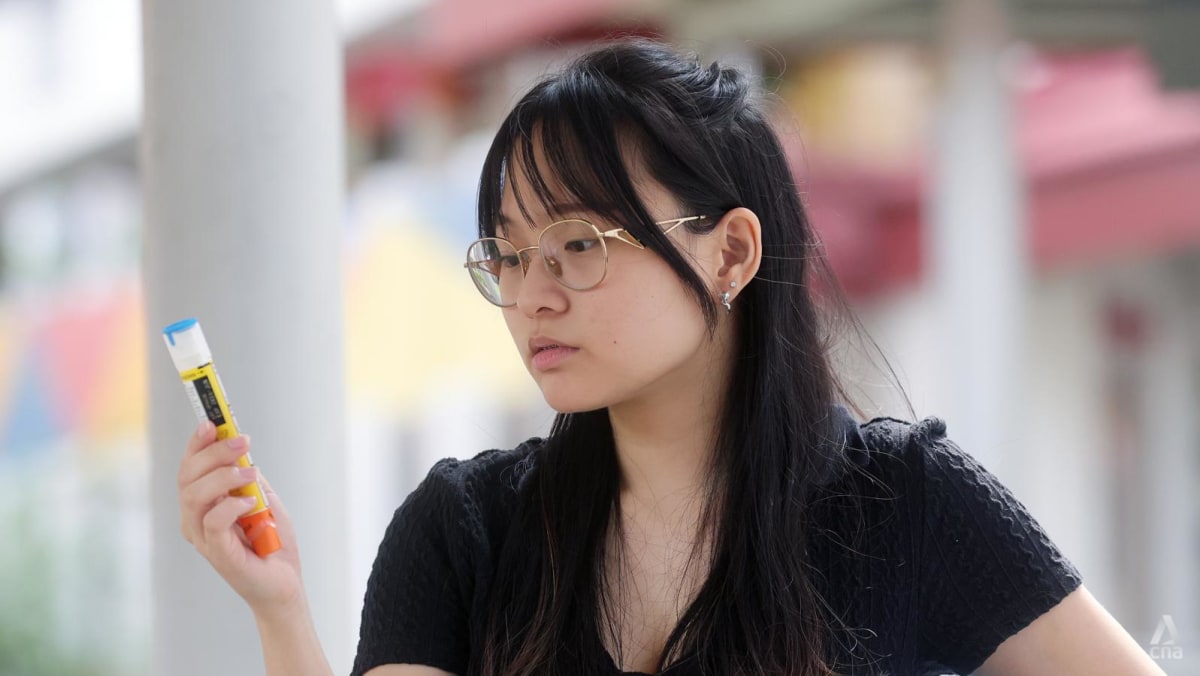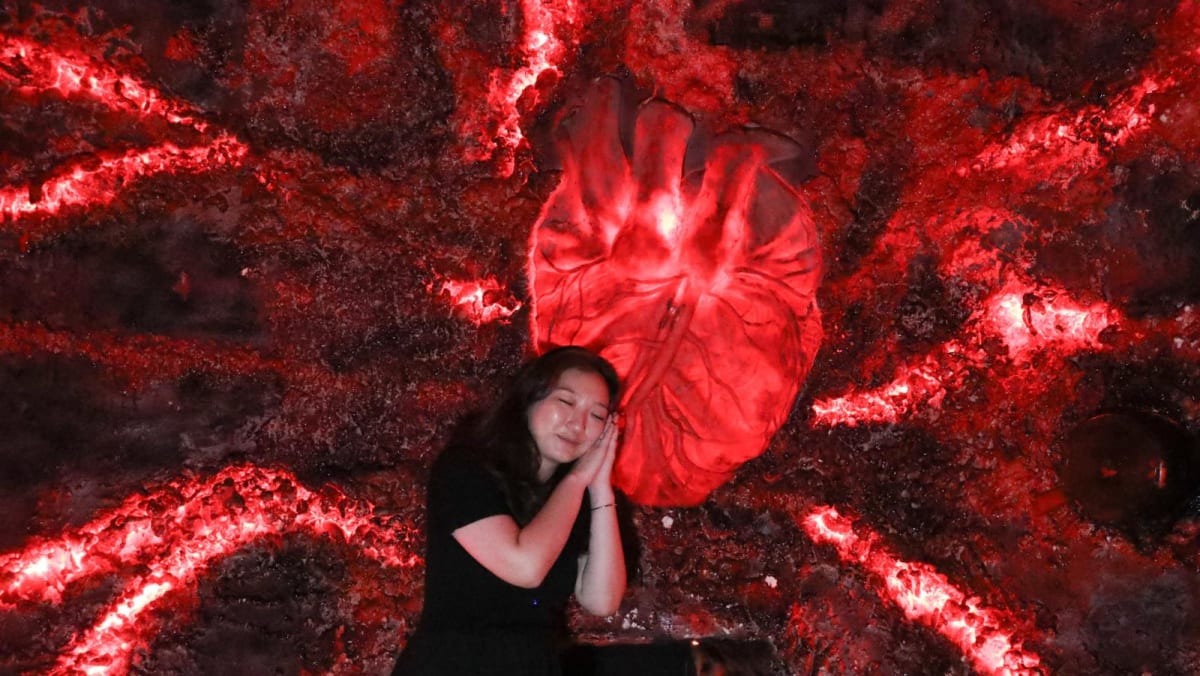Ms Teo is not alone in developing an allergy later in life.
Ms Tan Hui San, 32, discovered she was suddenly allergic to nuts seven years ago, despite having eaten peanut butter regularly without any problems.
It was not the public relations professional’s first encounter with a food allergy. Years earlier, as a teenager, she had a reaction to chicken rice that contained salted fish, which led to the discovery of her shellfish allergy.
“In 2018, I ate some cashew nuts and I started to feel an area of my tongue at the back of my throat starting to swell,” she recalled.
Ms Tan also has asthma, so she often feels a tightness in her chest that usually takes a few days or up to two weeks to subside whenever she has a reaction.
Over the years, her nut allergy has worsened, she observed. At first, she avoided only tree nuts; now, she cannot eat chocolate that might contain trace amounts of nuts.
“It’s strange because it never used to be so bad. I used to be able to eat, for example, a brand of chocolates and I never had issues with them before. A couple of months ago, I ate some chocolates I always eat and suddenly, I needed my inhaler,” she said.
“It feels like a very small thing and it might not seem severe, but living with it is stressful.
“There is this sense of the unknown. Sometimes you eat certain things and you feel like you’re okay – and then you’re not okay.”
As a precaution, Ms Tan carries around her inhaler and doctor-prescribed antihistamines, which are stronger than over-the-counter ones but leave her feeling lethargic.
“I feel like people just don’t realise the mental, emotional impact of it (living with allergies).”
DOCTORS REPORT RISE IN ALLERGY INQUIRIES
Doctors from both private and public healthcare clinics told CNA TODAY that they have noticed a steady increase in allergy-related consultations.
The majority of allergy cases in Singapore continue to involve children, but these doctors have noted a growing number of adults developing new allergies as well, although there is very little public data on the trend.
Dr Phang Kee Fong, consultant at the division of rheumatology and allergy at the National University Hospital (NUH), said he has seen “an increasing number of referrals to the adult allergy clinic”.
“We are also seeing patients who do develop new food allergies in adulthood, most commonly to shellfish such as prawns and crab,” Dr Phang added, noting that studies in adults with allergies are lacking.
“The nature of allergic diseases in adults may be different from what is seen in young children; hence, extrapolating paediatric management to the care of adult patients may not be entirely appropriate.”
Dr Tan Wei Jie, a general practitioner (GP) at DTAP@Orchard clinic, sees around two to three patients a week who ask for allergy tests and treatment. He said that the numbers have gone up over the past two years. His patients are mostly children and teenagers, but there are adults as well.
Many of these cases are mild, but he has observed a broader range of conditions, from skin rashes to more severe allergic reactions, particularly among children.













